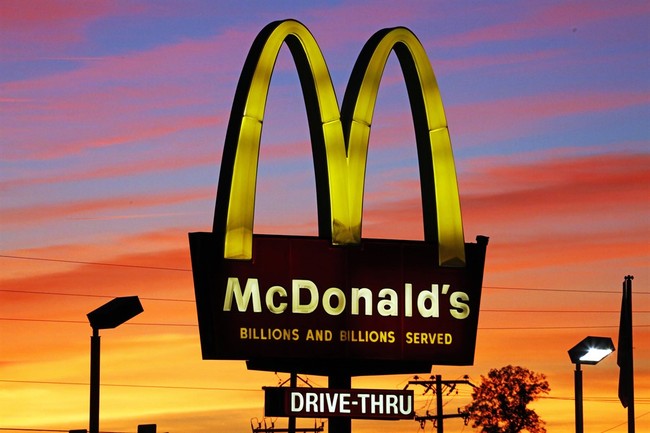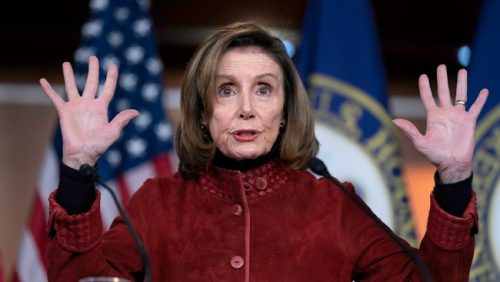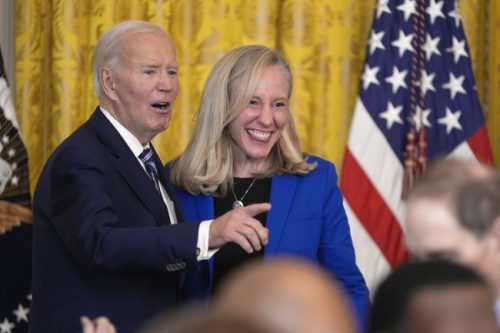Sen. Joni Ernst has unveiled the McSCUSE ME Act to curb what she calls rampant misuse of SNAP benefits at fast-food chains, pointing to USDA data showing massive spending — roughly $250 million a year — driven mainly by a handful of states and a 1977 exception that lets certain hot-prepared-food vendors accept benefits.
The U.S. Department of Agriculture is weighing wider SNAP reforms while Sen. Joni Ernst pushes targeted legislation to stop taxpayer dollars from flowing to drive-throughs and large fast-food chains. SNAP serves about 42 million people, but Ernst and others argue parts of the program have drifted from feeding families basic staples toward funding prepared meals at national chains.
Ernst highlighted a 1977 exception to the “hot food” restriction, known as the Restaurant Meals Program, which allows certain vendors to accept benefits for ready-to-eat food. That carve-out was originally narrow and meant to help homeless, elderly, and disabled people who lack kitchens, but its expansion in some states has turned it into a pathway for substantial fast-food spending.
The program has been adopted by nine states — Arizona, California, Illinois, Maryland, Massachusetts, Michigan, New York, Rhode Island, and Virginia — each setting rules for which vendors can participate and signing agreements that authorize restaurants to accept SNAP. Historically participation was limited to a few restaurants and counties, but recent state and federal actions enabled wide rollouts and far higher vendor counts in places like California.
New figures from Ernst’s office, drawn from USDA data, show that from June 2023 to May 2025 more than $475 million in taxpayer dollars were redeemed at fast-food restaurants in California alone. Across the nationwide restaurant meal program, about $524 million flowed through, with California accounting for a dominant share; state officials and actions by the Biden-controlled USDA helped authorize more than 5,800 restaurants to accept benefits.
Participating chains include many national names: McDonald’s, Burger King, KFC, Taco Bell, Denny’s, Popeyes Chicken, Carl’s Jr., Pizza Hut, Domino’s Pizza, Jack in the Box, Panda Express, and Wendy’s. Critics say allowing widely franchised fast-food outlets to accept SNAP benefits turns the program into an industry subsidy and undermines its nutrition goals.
“The ‘N’ in SNAP stands for nutrition, not nuggets with a side of fries,” Ernst told Townhall in an email. “I wish I were McRibbing you, but $250 million per year at the drive-through is no joke and a serious waste of tax dollars. I hate to be the one to say McSCUSE ME, but something needs to be done because taxpayers are not lovin’ it.”
Ernst introduced the McSCUSE ME Act to tighten the rules without cutting off vulnerable people. The bill keeps homeless, elderly, and disabled participation intact while removing automatic spousal eligibility and steering vendor participation toward outlets that provide healthy prepared food under food safety and retail oversight, rather than fast-food chains.
- Program Eligibility: continues to allow homeless, elderly, and disabled participation but removes automatic spousal eligibility.
- Vendor Participation: narrows eligibility to vendors with (a) healthy prepared food options and (b) food safety/retail oversight (e.g. Harris Teeter or Whole Foods with a hot bar). No fast-food chains.
- Public Reporting: requires a public annual report to show (a) the number of participating vendors, (b) the number of participating beneficiaries, and (c) total program costs.
The bill aims to return SNAP’s focus to nutritious groceries rather than prepared fast food and to make program costs and participation visible to taxpayers. Ernst argues this would protect vulnerable Americans while stopping what she calls a growing misuse of a safety-net program for corporate convenience.
USDA Secretary Brooke Rollins has warned publicly about problems inside the program, saying SNAP fraud was “out of control.” Those words have added urgency to the push for reforms from lawmakers who want clearer vendor standards and stronger public accounting of how benefits are redeemed.
Proposals like Ernst’s would not ban restaurants outright for people who genuinely need ready-to-eat meals, but would tighten vendor standards and reporting to ensure benefits go toward nutrition rather than subsidizing national fast-food footprints. Supporters say more transparency and targeted vendor rules can preserve access for those with no kitchen while stopping what they view as extravagant program growth driven by policy loopholes.
The answer should be NO, and I have a bill to stop it!
My McSCUSE ME Act will restrict SNAP dollars from being spent at fast food chains and refocus the program on its original mission: feeding hungry Americans.
The “N” in SNAP stands for nutrition, not nuggets! https://t.co/vzDDtPjE4o
— Joni Ernst (@SenJoniErnst) November 20, 2025
As the debate continues, the McSCUSE ME Act frames the issue around taxpayer value, program intent, and accountability, pushing federal and state actors to reconsider how a program created to reduce hunger has been stretched to include a commercial hot-food market. Lawmakers on both sides will have to balance practical access for vulnerable people with strict rules against waste and misuse.






